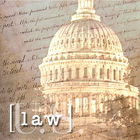
Fourth Amendment to the US Constitution:
NOT ALL POLITICS IS OPINION It is simply not true that all text and all language are opinion. That bias gives rise to a radical perversion of the "fairness doctrine", whereby all stories, no matter how evidentially sound, must include reference to at least one assertion that contradicts the lead story, no matter how evidentially void this oppposing assertion. [Full Story] |
AG GONZALES SAYS CONGRESS KNEW FULL EXTENT OF WIRETAPPING 24 January 2006 Attorney Gen. Alberto Gonzales, while speaking to a group at Georgetown University, defended the president's authorizing the warrantless wiretaps carried out by the NSA on US citizens. He reiterated the drumbeat that it was the 2001 Authorization for the Use of Military Force against Al Qaeda that gave the president the authority to execute warrantless wiretaps, despite prohibitions in federal law. During the speech, a group of about 20 protesters stood with their backs to Gonzales, while some held up a banner reading "Those who would sacrifice liberty for security deserve neither", quoting Benjamin Franklin. Again, Gonzales was not specific in citing any particular authorization in law, but simply referred to the AUMF as implying this unique power having been transferred to Pres. Bush. The attorney general did not deny that the program was instituted as a measure of spying on American citizens, on American soil, but emphasized that monitored calls were international and were thought to include at least one individual suspected of ties to Al Qaeda. Whether there was any evidence of such ties, or what the evidence was, or how it was obtained, Gonzales would not say. He did however go on to say that through the process of negotiating the AUMF and subsequent limited top secret briefings, members of Congress had been made aware of the full extent of the program. Members of Congress dispute this assertion. Many say only a handful of members were briefed at all, and what information was passed to Congress was limited and highly classified. Several members dispute ever having been informed that the rules of FISA were not being followed and that warrants were never issued nor even sought, for the surveillance the NSA was conducting in the US, under this program. The attorney general during his speech said members of Congress should have come forward as soon as they first learned of the program, if they believed it was illegal. Yet during the last year, the Justice Dept. threatened to prosecute members of Congress if they were found to have leaked classified information, even in cases where that information had already been published in the press (the threat was never realized). The latest remarks have raised concerns about the nature of the argument being made for the legality of the wiretaps. Essentially, it's a war powers argument, where the administration is claiming that the extraordinary circumstances of war require that the executive branch have the power to circumvent laws that normally limit government authority. This sounds to some observers dangerously close to a suggestion that a state of war implies at least a selective suspension of the Constitution. In 2004, it was revealed that the Department of Homeland Security was seeking advice on how to go about suspending national elections, should a security emergency occur; this suggestion was quickly withdrawn after a near universal outcry, largely on the basis that it suggested a suspension of Constitutional structures and processes and the rule of law. The attorney general also claimed that warrantless spying had been used by presidents since the Civil War, and that the only use for the information was to be intelligence gathering and prevention of terrorist attack. So far, there is no clear accounting of what information was gathered, how many calls were listened to, how frequently individual lines were repeatedly tapped, or what sort of records were kept. There has also been no formal accounting of what events were prevented, what plots uncovered, what individuals captured or prosecuted, or if the warrantless taps had related in any way to any arrests or criminal cases. Sen. Arlen Specter (R-PA) has expressed doubts about the legal basis claimed for the extrajudicial surveillance, and will hold hearings next month into the wiretapping program. [s]
BACKGROUND: The US Department of Justice, under Attorney General Alberto Gonzales, who advised Pres. Bush as White House Counsel, during the planning of the extrajudicial wiretaps, has issued a 42-page report that claims authorization for the wiretaps was implicit in the preliminary "Authorization for the Use of Military Force" (AUMF), passed after the attacks of 11 September 2001. [Full Story] FMR VP AL GORE GIVES 'TRANS-PARTISAN' SPEECH ON DANGERS OF EXTRA-CONSTITUTIONAL ABUSES Former US Vice President Al Gore gave what is being described as an historic non-partisan speech, calling for a passionate nationwide movement to defend and uphold the Constitution of the United States. Gore gave the speech in a non-partisan context, speaking at the Daughters of the American Revolution hall, with the express support and participation of Representative Bob Barr, Republican of Georgia. [Full Story] |
||||||
|
|||||||

